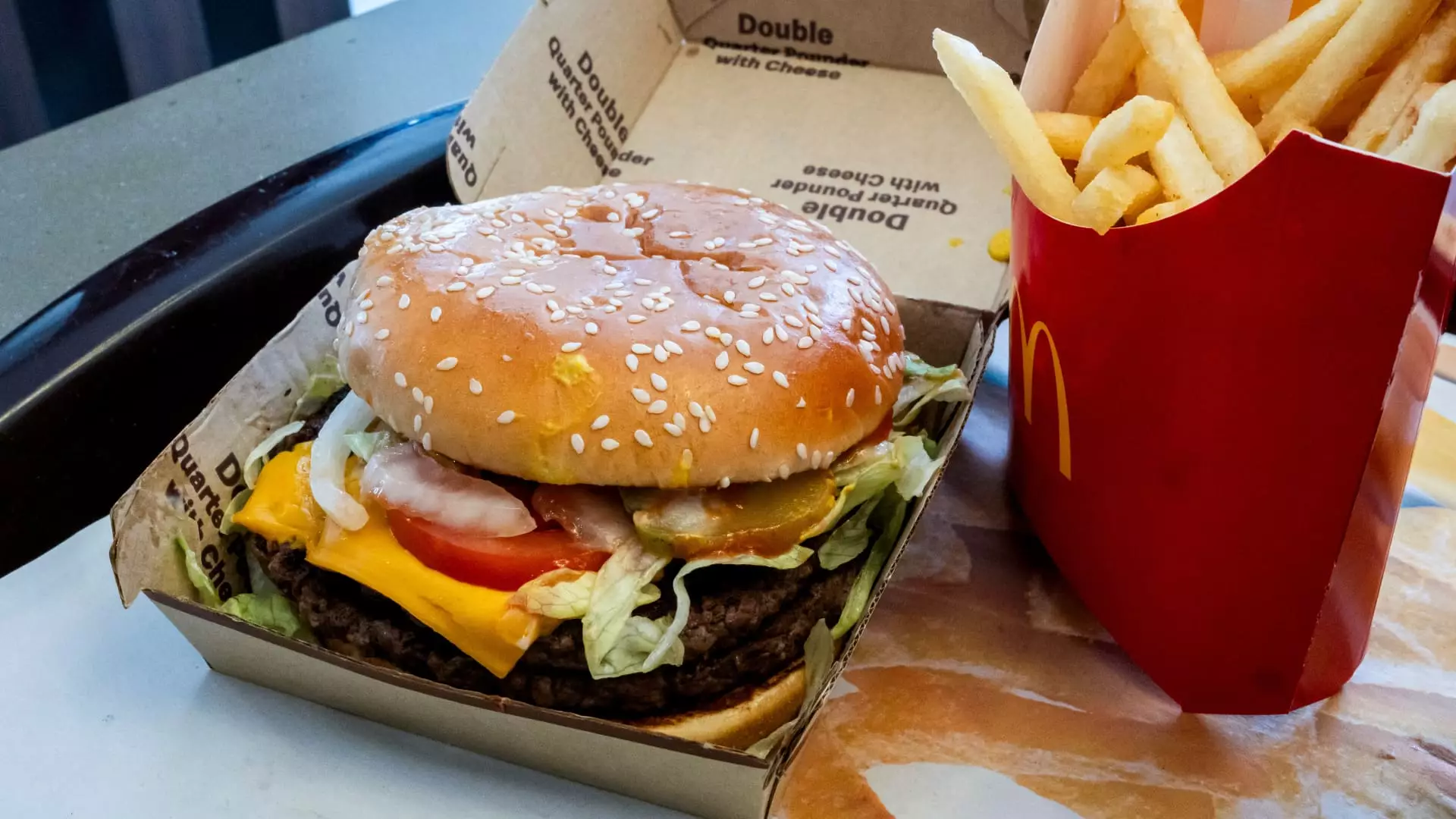In a calculated effort to restore public confidence, McDonald’s has reintroduced its Quarter Pounder burgers to approximately 900 restaurants, following a significant withdrawal of the item due to a deadly E. coli outbreak. This decision is part of a larger strategy to navigate a crisis that has put the health of consumers and the reputation of the fast-food giant at stake. The affected locations, which span a fifth of McDonald’s U.S. footprint, are now serving these iconic burgers sans slivered onions, as investigations continue into the source of this alarming outbreak.
The decision to exclude slivered onions reflects a focused response to the outbreak linked primarily to a particular ingredient rather than the entire product offering. As health authorities sift through the evidence, Colorado, Kansas, Wyoming, and parts of nearby states will be the first to feel the impact of this modified menu. Such a selective approach highlights the complexities of managing food safety in a sprawling franchise model, where the need for swift action competes with the desire to maintain menu variety.
Cesar Pina, McDonald’s chief supply chain officer for North America, assured stakeholders in a company letter that the issue seems to be geographically and ingredient-specific. His claim is bolstered by the Colorado Department of Agriculture’s testing, which did not uncover E. coli in beef samples taken from local restaurants. This assertion aims to reassure both customers and investors that the company is actively managing the crisis and is committed to quality assurance. Notably, the agency reported that it would not undertake further testing of the company’s beef, which suggests either confidence in the current supply or an unwillingness to engage in potentially resource-draining initiatives without further evidence.
However, the spotlight has decidedly shifted toward the slivered onions, suspected of harboring the E. coli strain responsible for infecting individuals across multiple states. The Food and Drug Administration (FDA) is currently probing Taylor Farms, the onion supplier, as a potential point of contamination. In a preemptive move, McDonald’s has severed ties with Taylor Farms for the time being, underscoring the seriousness of the situation and the company’s level of concern regarding customer safety.
The statistics emerging from the Centers for Disease Control and Prevention (CDC) are sobering. The outbreak has led to 75 confirmed cases across 13 states, with notable hospitalizations and a tragic death reported in Colorado. These numbers serve as a stark reminder of the consequences associated with foodborne illnesses, particularly when connected to widely consumed menu items such as the Quarter Pounder. As McDonald’s prepares for a third-quarter earnings report, shareholders and stakeholders alike are grappling with the economic fallout. The company’s shares have plummeted by 7% in the wake of these revelations, indicative of investor anxiety about long-term brand damage.
In a heartfelt apology, McDonald’s USA President Joe Erlinger addressed the public’s concerns, acknowledging the fear and uncertainty many consumers are experiencing. His assertion of a collective remorse from the McDonald’s system is a strategic attempt to soften the blow of the brand’s tarnished image. It reflects an effort not just to placate customers but to convey a genuine commitment to rectifying the missteps that led to this public health scare.
As McDonald’s navigates this challenging landscape, the phased return of the Quarter Pounder indicates a cautious optimism. The company’s commitment to producing fresh supplies of beef patties specifically for this iconic menu item suggests an aim not only to restore availability but to rebuild consumer trust. The ongoing investigation and adjustments to supply chains will be crucial as they look to prevent future incidents while ensuring that safety standards remain paramount.
Ultimately, the E. coli outbreak serves as a reminder of the vulnerabilities inherent in the fast-food industry. While McDonald’s takes vital steps to contain the situation and secure its supply chain, the real test lies in the long-term perception of its commitment to customer safety, transparency, and quality. In the competitive arena of quick-service dining, how McDonald’s maneuvers this crisis will likely impact its future interactions with customers and its bottom line.

Leave a Reply